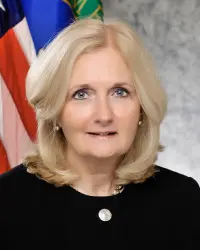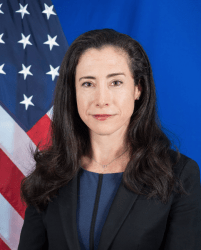

2:00 pm EDT - 3:30 pm EDT
Past Event
2:00 pm - 3:30 pm EDT
1775 Massachusetts Avenue N.W.
Washington, DC
20036
It is a dynamic and fast-moving time with regard to the security of the outer space environment. In March 2018, India conducted a successful anti-satellite test. Russia and China continue to advance their anti-satellite weapons capabilities by developing various technologies, from laser weapons to ground-based anti-satellite systems. In response to this increasingly contested environment, President Donald Trump proposed the creation of a U.S. Space Force in 2018. The idea was not without controversy. While some experts lauded the decision, others advocated instead for a Space Command. A year in, that debate continues.
On July 31, the Foreign Policy program at Brookings hosted a discussion on the evolving threats to space security and how the United States and the international community can most effectively respond to these challenges. Brookings Senior Fellow for Security and Strategy Frank Rose was joined by an expert panel including Todd Harrison; Mallory Stewart; and Madelyn Creedon. Brookings Senior Fellow Michael O’Hanlon moderated the discussion and also shared his thoughts on the issues.
Following the conversation, panelists answered questions from the audience.
Moderator

Panelist



Jeffrey Feltman
March 2, 2026
2026
Online only
Tuesday, 2:00 pm - 3:00 pm EST

Thomas Wright
February 27, 2026